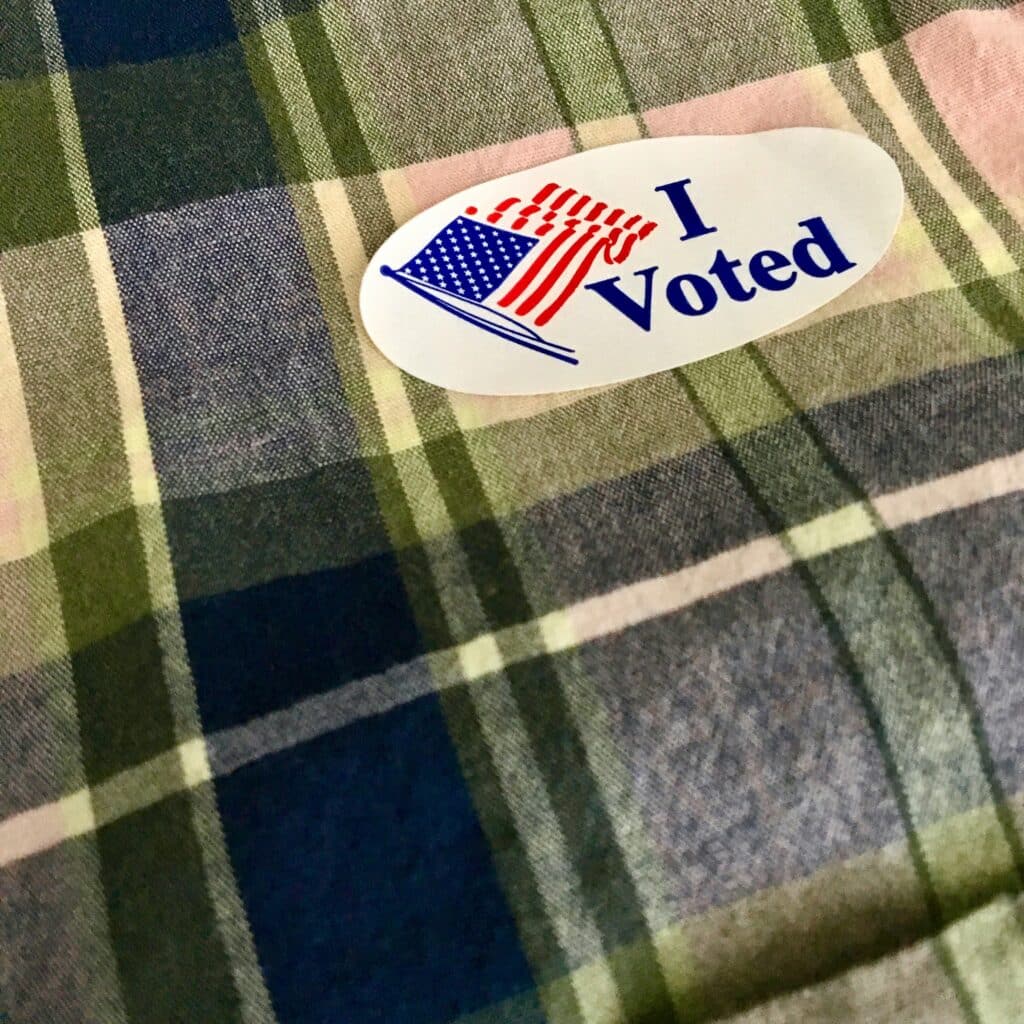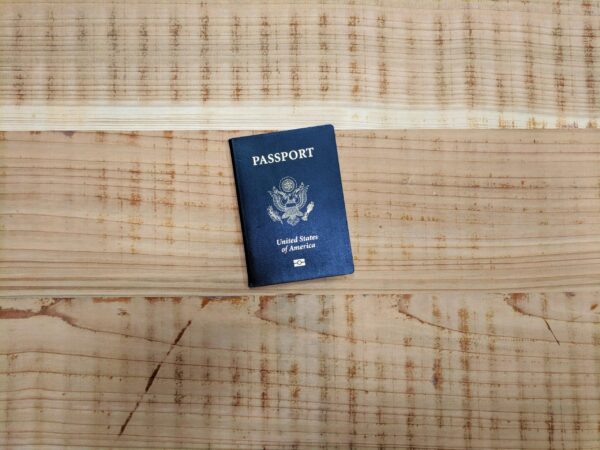Earlier this year, the Maine Secretary of State released finalized language for the referendum that will appear on the ballot in November as Question 1:
“Do you want to change Maine election laws to eliminate two days of absentee voting, prohibit requests for absentee ballots by phone or family members, end ongoing absentee voter status for seniors and people with disabilities, ban prepaid postage on absentee ballot return envelopes, limit the number of drop boxes, require voters to show certain photo ID before voting, and make other changes to our elections?”
Read the draft of the full proposal here.
Who is Behind Question 1?
A citizens’ initiative campaign called “Voter ID For ME”— supported by the conservative grassroots organization, Dinner Table PAC, and right-wing political donor Leonardo Leo — collected enough signatures to put the referendum on the ballot on Election Day this year.
What’s At Stake?
In November, voters in Maine will be asked whether they want to make large-scale changes to their already safe and secure voting system, including limiting absentee voting, cutting early voting, and adding a photo ID law.
If Question 1 passes, here are the changes Mainers can expect:
- Only ONE absentee ballot drop box per municipality. This means, for example, Portland, which has around 70,000 people, would have only one drop box for the entire municipality
- Voters who are over 65 or disabled who currently have an ongoing absentee voter status would instead have to submit a new absentee ballot request for every single election.
- Voters would only be able to request an absentee ballot by mail, online, or in person. They would no longer be able to call their town clerk to request one.
- Mainers would lose two days of early absentee voting.
- No more prepaid return postage for absentee ballots, even if taxpayers vote to fund it.
- Mainers would be required to show a specific form of photo ID before voting
- Mainers would no longer be able to ask a family member or friend to pick up their absentee ballot.
Photo ID Provision
Question 1 proposes that all voters provide an accepted photo ID when they vote in person. Those voting would be required to submit their driver’s license or state ID number, or a copy of an accepted photo ID, when they return their mail ballot.
Under Question 1, only four types of photo ID would be acceptable for voting in person or by mail. All must also be unexpired:
- Maine driver’s license
- Maine non-driver’s ID
- US passport or passport card
- Military ID
This means the following common forms of ID and other documents would not be acceptable for voting:
- University or college student ID
- Employee ID
- Social Security card
- Birth certificate
- Tribal ID
Myth-Busting
Myth: Everyone has an ID
FACT: No, Not Everyone Has An ID
It’s a dangerous misconception that everyone has an ID.
In 2024, VoteRiders conducted a nationwide study with the Center for Democracy and Civic Engagement (CDCE) that found that one in 10 eligible US citizens do not have a non-expired driver’s license. Another 28.6 million lack an up-to-date license that has both their current name and current address.
Why do so many Americans lack an acceptable ID? Because obtaining identification documents can be extremely difficult.
Getting an ID first starts with having other essential documents, like a birth certificate or a Social Security card. But for many people, these documents were either never issued or were lost or damaged—like Denesha, whose birth certificate was destroyed in a house fire.
Replacing these documents can also mean trudging through complicated and confusing forms, strict requirements, and multiple trips to ID-issuing offices—like Edward experienced when he had to visit the DMV 20 times before getting his ID. And with the average birth certificate costing $50 (more than five hours of minimum wage pay in many states), the process can also be costly.
This expense doesn’t even include the cost of time and travel it takes to get to ID-issuing offices. April, who lives in a rural area and doesn’t have reliable transportation, had to wait weeks until someone could give her a ride to the DMV.
Myth: Voter ID Laws Prevent Voter Fraud
FACT: Voter ID Laws are Harmful & Unnecessary
Voter ID proponents argue that voter ID laws are “commonsense” measures to secure our elections by preventing voter fraud and restoring trust in the electoral process. But countless studies show that voter fraud is virtually nonexistent because our current voting laws already ensure our elections are secure.
Even the sponsors of Question 1 have admitted that voter fraud is not a problem in Maine.
Mainers want secure elections—and they already have them. According to the conservative organization, The Heritage Foundation, Maine has identified only two cases of voter fraud since 1982, and both individuals were prosecuted.
“Let’s be honest,” one Maine resident wrote in a letter to the editor published in the Boothbay Register.
“This referendum isn’t about securing Maine’s elections; it’s about limiting the number of people who vote. Don’t be fooled. Please learn the facts and vote against Question 1.”
In other words, voter ID laws are a solution in search of a problem—plain and simple. By preventing eligible voters from casting their ballots, or making it harder for many to do so, it makes the election process less equal, not more.
If Question 1 Passes in Maine, Who Will Be Impacted?
Question 1 would make it harder for Mainers across the entire state to vote—especially historically marginalized communities who rely on absentee voting and are less likely to have one of the four types of accepted photo ID—such as seniors, disabled voters, and residents without reliable transportation.
VoteRiders’ research found that twenty percent of people who self-identified as having a disability do not have a driver’s license. Disabled individuals are also especially likely to face challenges accessing other forms of ID, and this effect is multiplied in a rural state like Maine.
Voters from across Maine have voiced their opposition to Question 1, highlighting the various ways that these voting restrictions will strip them of their access to the ballot box.
“I live on Beals Island. The nearest Bureau of Motor Vehicles branch office where one can obtain a state identification card is in Ellsworth, a three-hour round-trip journey,” one man wrote to the Bangor Daily News.
“As Maine BMV offices are not open during weekends and I cannot drive due to my Blindness, I must take time off from work and also hire a driver or rely on friends or family who must do the same. Given that Maine is a rural state, this will be the experience of many disabled Mainers who cannot legally drive if they need to obtain an ID in order to vote.”
What Could Go Wrong? Just Look At Ohio’s Photo ID Law
Ohio’s photo ID law, enacted in 2023, has not made its elections more secure. Instead, it has kept thousands of Ohioans from making their voices heard.
Ohio already had an ID law prior to 2023, requiring voters to show a range of photo and non-photo IDs. The recent switch to requiring only a government-issued photo ID has resulted in a significant increase in the rate of ballots being rejected.
The text of Maine’s photo ID proposal closely mirrors Ohio’s photo ID law. Beyond the language seeming to be copied and pasted, both have the same extremely narrow list of only FOUR types of accepted, unexpired photo IDs.
During the first two Ohio elections since the photo ID law was enacted, many Ohio voters showed up with an accepted type of ID, but were turned away simply because it had expired. Ironically, the original sponsor of the Ohio bill has since admitted that the thousands of rejected ballots are a “problem” and regrets passing the bill.
If Question 1 passes, Maine would join not just Ohio but also a slew of states, including Georgia, Kansas, Mississippi, and Wisconsin, that have all used strict photo ID laws to deliberately block eligible citizens from voting.
What Can You Do? Take Action With Us!
Right now, Maine is a national leader in administering secure and accessible elections. The way we can build trust in our electoral processes is by making our elections available to all eligible voters—not by shutting people out.
But if Maine voters enact this unnecessary, anti-voter law in November, the outcome will be disastrous for both Maine and our democracy.
VoteRiders is proud to be part of the Save Maine Absentee Voting coalition alongside dozens of other voting rights groups who are urging Maine voters to reject the unnecessary and burdensome proposal to change the state’s election law.
Whether you’re a Maine resident or not, there are multiple ways to take action:
For Maine Residents
Live outside of Maine? There are a lot of ways you can help us fight back against this restrictive voting law in Maine and against similar laws across the country. Learn more at VoteRiders.org/action.
September 24, 2025.




